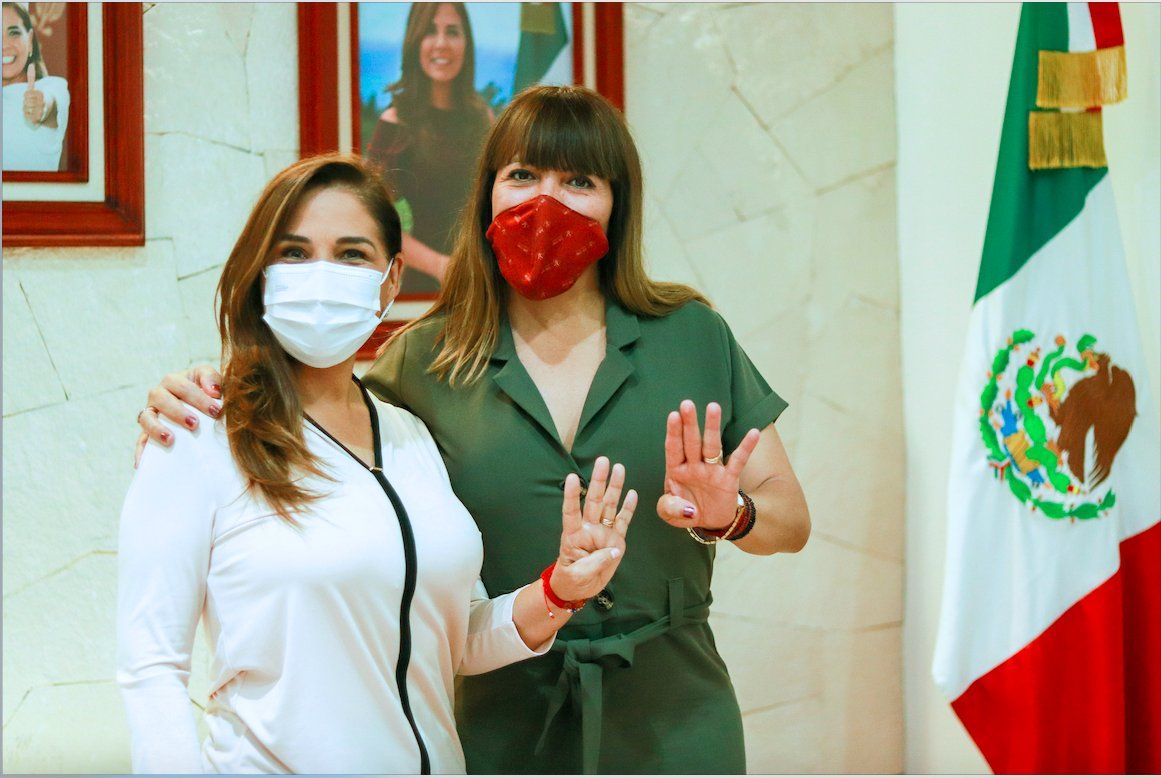As a teenager, Salma Luevano was once jailed for dressing as a woman. Three decades later she is one of Mexico’s first two newly elected transgender members of Congress.
Together they hope to bring about political change and fight for the rights of an LGBT community that has faced years of discrimination and violence.
Luevano was strolling with friends in a shopping center in the conservative central city of Aguascalientes aged 17 when they heard a police siren.
Suddenly they were surrounded by officers who took them away and accused them of acts of indecency, she told AFP.
Also read | Czech Republic President draws ire for calling transgender people ‘disgusting’
Luevano spent 36 hours locked up, an experience that she remembers with bitterness but which marked the beginning of her activism seeking respect for sexual diversity.
First, it was a sit-in in front of the city hall to protest against the arrests.
Later came legal battles over sexual identity and, more recently, to force political parties to include members of the LGBT community in their lists of candidates for legislative elections held on June 6.
That breakthrough led to Luevano and another transgender candidate, Maria Clemente Garcia, being elected as lower house lawmakers for the ruling Morena party.
“It’s a great message for our community that for decades has been so discriminated against,” said Luevano, a 52-year-old human rights defender, stylist and lawyer-in-training.
Despite being a graduate in business administration, discrimination made it hard for Garcia to build a successful career, she said.
Until recently, the left-wing activist made a living as a taxi driver in Mexico City.
“It’s historic that the most vulnerable sector of the gender diverse population — trans women — will be part of the country’s decision-making,” the 36-year-old said.
Also read | What is Hungary’s new LGBT law and why is it causing such a stir?
Life expectancy for transgender people in Mexico is 35 years due to the violence they face, according to the Inter-American Commission on Human Rights, compared with 77 for the general population.
Mexico is the second deadliest country for transgender people after Brazil, according to the advocacy groups Letra S and Transgender Europe.
In 2020, 79 members of Mexico’s LGBTI+ community are believed to have been murdered because of their sexual orientation or gender identity, including 43 trans women, according to Letra S.
The figure was even higher the previous year before the pandemic led to lockdown restrictions.
Garcia said she aims to modify the article of the Constitution prohibiting discrimination based on sexual preference so that it refers to sexual orientation, gender identity and gender expression instead.
She will also promote the creation of the first comprehensive clinic for trans people in the capital.
“We’re not the same as gays or lesbians. We don’t live the same,” she said.
Luevano said she wants to expand the right to gender identity to reduce the “extreme poverty” that afflicts the trans population due to a lack of opportunities.
Also read | France to legalise IVF for lesbians after two-year debate
This right, which allows the name and gender to be changed in official documents, is recognized in only 13 of 32 Mexican states.
More than 100 members of the LGBT community, including around 40 transgender candidates, ran in the June 6 legislative and local elections.
Previously only one transgender person, Rubi Araujo, had been elected to public office in Mexico, as a municipal councilor in the central state of Guanajuato in 2016.
“First gay men and then lesbian women found space to be represented in Congress,” said Letra S director Alejandro Brito.
“Now that trans people have greater visibility it’s only fair that it translated into a legislative presence,” Brito added.
But the struggle is not over, Garcia said.
“We need efforts to move from having one, two or five trans lawmakers to having a Congress where people of sexual diversity feel represented,” she said.







